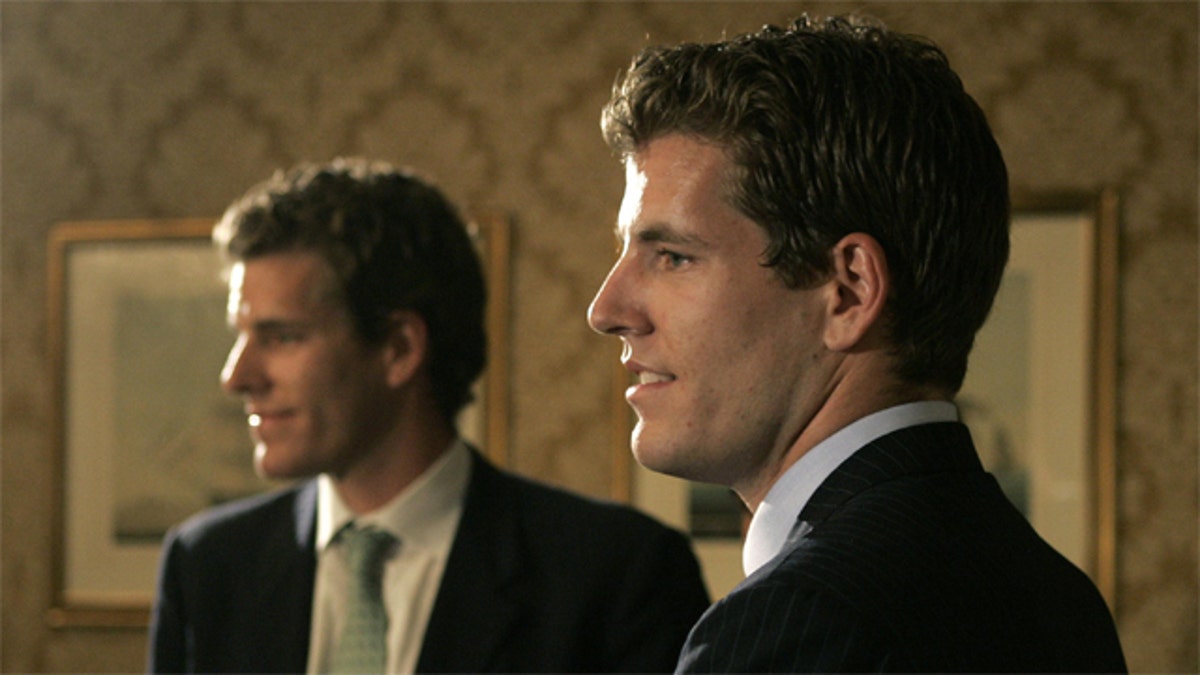
Cameron and Tyler Winklevoss, who were famously portrayed by Armie Hammer and Josh Pence in The Social Network, a Hollywood blockbuster that dramatized the events surrounding the founding of the 500-million-strong social network. (AP)
SAN FRANCISCO – It's the lawsuit that just wouldn't die.
Despite the forceful and clear ruling handed down by one of the country's top courts last week, the Winklevoss twins asked the appeals court Monday to reconsider its order demanding they accept a settlement over the creation of Facebook, the world's most popular social network.
Tyler and Cameron Winklevoss initially claimed that Mark Zuckerberg stole their idea for Facebook; they agreed to drop their lawsuit in 2008 in exchange for $20 million in cash plus stock in the company.
The twins say they later discovered the stock was worth less than claimed at the time, and they sought to have the deal voided.
A three-judge panel of the 9th U.S. Circuit Court of Appeals ruled against Tyler and Cameron Winklevoss -- the former Harvard University classmates of Facebook founder Zuckerberg -- arguing that the twins were savvy enough to understand what they were agreeing to when they signed the agreement in 2008.
"At some point, litigation must come to an end," chief justice Alex Kozinksi wrote for the unanimous three-judge panel. "That point has now been reached."
Not so fast, the lawyers now argue.
Legal representatives for the Winklevosses have asked for a special 11-judge panel to consider their appeal, hoping the larger panel will find things more in their favor.
“Whether Appellants would be better off financially keeping the proceeds of the settlement rather than rescinding and proceeding with their lawsuit against Facebook is a personal judgment for them — not an appellate court — to make,” their lawyers wrote.
Cameron and Tyler Winklevoss were famously portrayed by Armie Hammer in The Social Network, a Hollywood blockbuster that dramatized the events surrounding the founding of the 500-million-strong social network.
The original case was brought against Facebook in 2004 when the brothers claimed that Zuckerberg broke an oral contract with the plaintiffs to create ConnectU (originally dubbed the Harvard Connection). The twins alleged that Zuckerberg not only stole the code and the idea, he stalled them them so he could get his site, thefacebook.com, out first.
The suit was originally settled for $65 million in 2008 but the latest lawsuit had claimed fraud for Facebook and Zuckerberg “not volunteering a more recent valuation of different Facebook stock.” The settlement is now worth more than $160 million because of Facebook's increased valuation.
Facebook would not comment on the latest court motion, instead telling FoxNews.com that “we appreciate the Ninth Circuit’s careful consideration of this case and are pleased the court ruled in Facebook’s favor.”
Meanwhile, Facebook faces legal challenges on another front. Paul Ceglia, an upstate New York businessman, claims that in 2003 he made a $1,000 investment in Facebook, which entitles him to 50 percent of what is today the 500 million-user force powering social networking.
Facebook calls the emails -- as well as Ceglia himself, and the entire case -- an utter fraud.








































